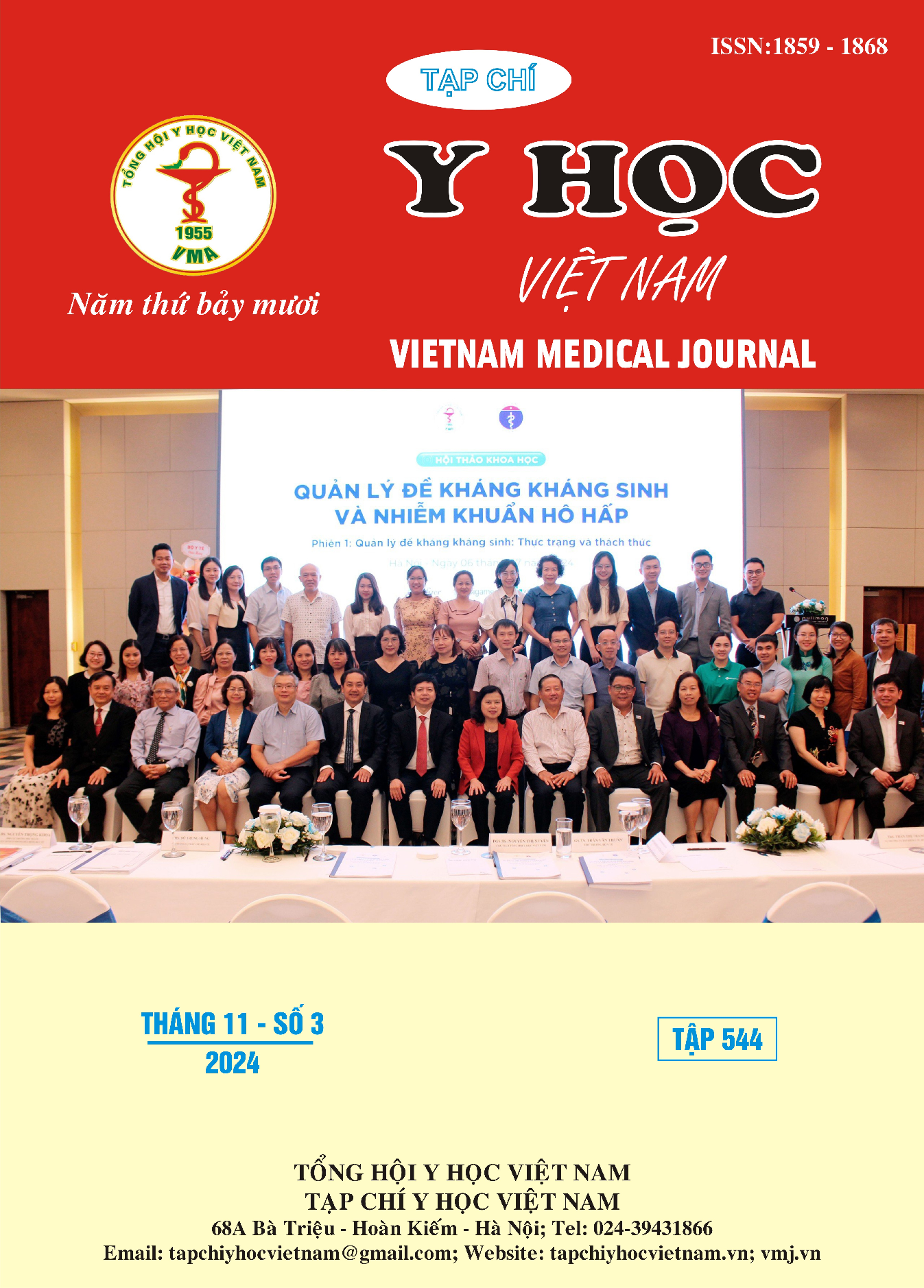SUMMARY RESULTS OF PARTIAL LARYNGECTOMY IN TREATMENT OF T1 – T2 LARYNGEAL CANCER AT UNIVERSITY MEDICAL HCMC FROM 2018 TO 2022
Main Article Content
Abstract
Background: Laryngeal cancer is a common type of head and neck cancer. The success of laryngeal preservation methods in partial laryngectomy for laryngeal cancer treatment is not only meaningful in the resolution of the disease, but also in preserving laryngeal function and improving the quality of life of patients. Objectives: Survey on surgical outcomes of patients with laryngeal cancer after partial laryngectomy and indicating important factors related to surgical results. Method: The study was carried out on 42 laryngeal cancer patients undergoing partial laryngectomy at the University Medical Center HCMC from January 1, 2018 to January 1, 2022 and monitoring the patient's recurrence and death. Result: The majority were male, accounting for 92.9% with the mean age of 61.3 ± 8.8 years. Surgical methods include oral laser microsurgery in 11.9% of the patients, and partial laryngectomy in 88.1% of the patients. The mean postoperative hospital stay was 7.4 ± 4.4 days. The laser microsurgery group had a shorter postoperative hospital stay than the open surgery group with p < 0.005. The most postoperative complications were pneumothorax with 16.7%, pneumonia with 9.5%; surgical site effusion and wound infection with 4.8%; Neck fistula, bleeding and bronchitis all orcurred in 2.4% of the patients. The results of distant follow-up showed that the recurrence rate was 9.5%. 100% of patients survived, no patients died. The mean disease-free survival time was 3.7 years, the disease-free survival rate after 3 years was 92.8%. The mean disease-free survival time of the N0 group was longer than that of the N1 group, the stage I and II groups were statistically significantly longer than the stage III with p < 0.05. Conclusion: Partial laryngectomy to treat early laryngeal cancer is safe and effective, helping patients to preserve the larynx while still achieving the goal of treatment.
Article Details
Keywords
Surgery, partial laryngectomy, laryngeal cancer.
References
2. Bui AT, Yong Ji KS, Pham CT, et al. Longitudinal evaluation of quality of life in Laryngeal Cancer patients treated with surgery. Int J Surg. 2018 Oct; 58:65-70. doi: 10.1016/j.ijsu.2018.09.011.
3. Dinescu FV, Ţiple C, Chirilă M, et al. Evaluation of health-related quality of life with EORTC QLQ-C30 and QLQ-H&N35 in Romanian laryngeal cancer patients. Eur Arch Otorhinolaryngol. 2016 Sep;273(9):2735-40. doi: 10.1007/s00405-015-3809-0.
4. Gökmen MF, Büyükatalay ZÇ, Beton S, Gökcan MK, Dursun G, Meço C, Küçük TB. Functional and Oncological Outcomes of Open Partial Laryngectomy vs. Transoral Laser Surgery in Supraglottic Larynx Cancer. Turk Arch Otorhinolaryngol. 2020 Dec;58(4):227-233. doi: 10.5152/tao.2020.5573.
5. Muscatello L, Piazza C, Peretti G, et al. Open partial horizontal laryngectomy and adjuvant (chemo)radiotherapy for laryngeal squamous cell carcinoma: results from a multicenter Italian experience. Eur Arch Otorhinolaryngol. 2021 Oct;278(10):4059-4065. doi: 10.1007/s00405-021-06651-
6. Pecorari G, Perottino F, Riva G, et al. Pignat's vertical partial laryngectomy with crico-hyoido-epiglotto-plasty. Eur Arch Otorhinolaryngol. 2022 Feb;279(2):979-986. doi: 10.1007/s00405-021-06858-7.
7. Xu W, Lyu ZH, Ma JK, et al. The oncologic and functional outcomes of supracricoid partial laryngectomy for the treatment of laryngeal cancer. Zhonghua Er Bi Yan Hou Tou Jing Wai Ke Za Zhi. 2019 May 7;54(5):339-342. Chinese. doi: 10.3760/cma.j.issn.1673-0860.2019.05.005.


